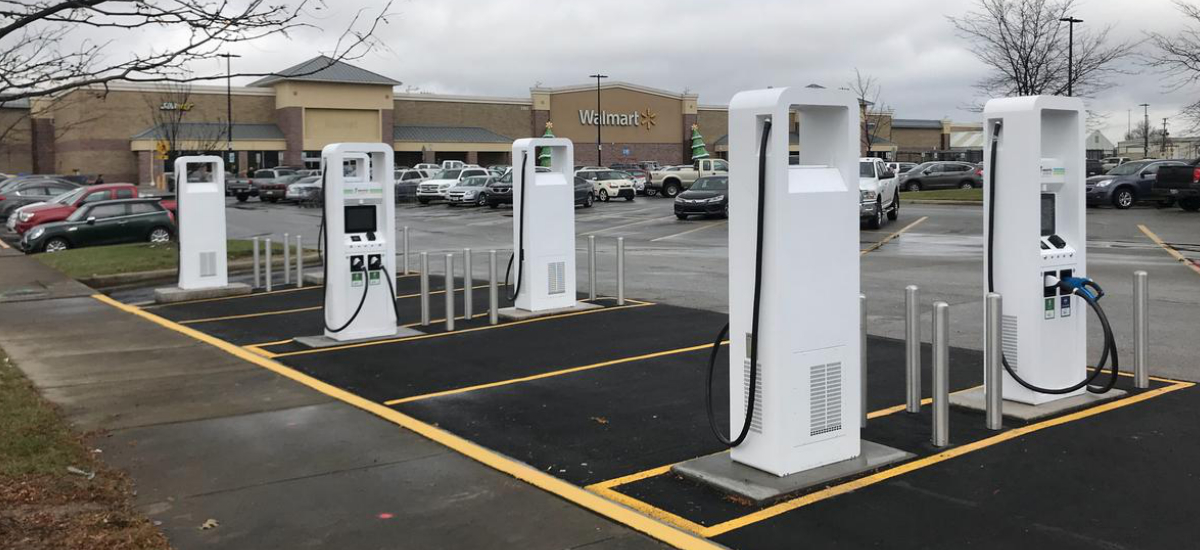
 Your Credit Estimate
Your Credit Estimate
 Your Credit
Your Credit
Your zip code helps us provide you with the most accurate vehicle pricing and vehicle availability.
We estimate your credit score to give you an idea of your monthly payments. To get an accurate payment amount, complete our credit application by clicking the Start Credit Application button below.
start credit application
With many automakers making the shift towards battery-electric vehicles (BEVs), many names in the industry are hinting or teasing future plans for an electrified lineup while still focusing on gasoline engines. One the one hand, it makes sense. Anyone above 40 has always known automobiles as gas-powered machines that are easy to fill up on-the-go. So, of course, automakers want to keep these consumers happy and offer what they’re used to. The problem with that, is if an automaker doesn’t pull out all the stops and dives into BEV production, they can find themselves actually losing money when the more environmentally-friendly demographic enters the market and resources for BEVs become pricey. Volvo Cars chief Jim Rowan knows this and warns competitors to put up or shut up.
"The big problem with industry transitions is if you don't invest ahead of the curve, then you miss that inflection point, and you're not ready for when the market changes…We are investing ahead of the curve…The market is moving towards electrification, and you best get ready…We've been bold enough [to] invest ahead of that inflection point, which we know [will] come." – Rowan
It’s true, though, isn’t it? The latter-half of the Millennial generation woke up and realized we need to save planet Earth. Even though oil companies are relying on gasoline to reign supreme, one day, the Earth is going to stop drilling for oil, burning coal, and fissioning uranium. Cleaner, more readily available power sources are there, and despite questionable TikTok fads, Gen Z might be the one to force automakers to change. Most if not all are more environmentally-conscious, and as soon as they enter the market, automakers are going to face a grave decision – go electric or go bankrupt.
According to Car and Driver, sales for BEVs is up 60-percent. A report by The Wall Street Journal reported on a milestone for BEVs when these cars finally owned a 10-percent market share in 2022. That market share is only going to grow, and with automakers like Kia releasing Plan S – a business strategy to obtain a 6.6-percent global BEV market share by 2025, then the competition is surely heating up. Just about every automaker has a BEV Plan for 2030, but not everyone. Those that don’t will have more than Gen Z to answer to. Remember the semiconductor chip shortage? Yeah, that’s going to look like a joke once BEV supplies and resources become higher in demand.
High raw material costs may be a factor affecting automakers who want to make the shift, especially considering lithium, a key element in vehicle batteries, is becoming more and more expensive to mine and process. Unless an automaker figures out how to make a solar-powered vehicle that won’t fail on rainy days, the next best thing is a hydrogen-fuel cell vehicle. The Hyundai Motor Group is the most forward-thinking about this, currently working on an Electrolyzer Stack with Next Hydrogen to produce a world-leading hydrogen fuel cell system. Volvo and other automakers are working on signing agreements with certain factories to reserve supplies if not working solely for that automaker to get direct access to lithium and other resources at a better price before costs escalate even further.
Auto groups like Stellantis may be betting on their “wait and see” approach, able to design BEVs that get right what already works and avoid the things that don’t, but BEVs are still new to the market. There are plenty of unforeseen problems that could arise, especially with how long it’s taking for BEV charging stations to be built en masse. Several automakers have signed agreements to build BEV charging stations, and most recently, gas giant Shell joined the movement to change city infrastructure for BEV charging. If even oil companies are talking about BEVs, it’s almost too late to join the bandwagon.
What do you think? Should all automakers go full BEV and avoid becoming as much of a fossil as their prime fuel source? Join the discussion on NowCar social media.